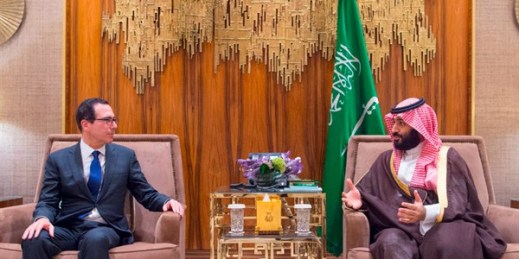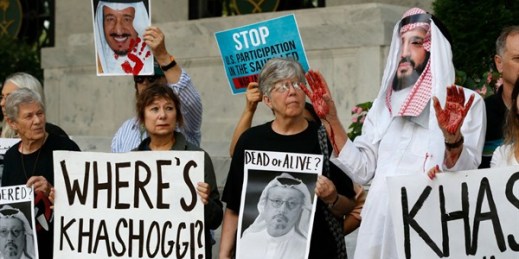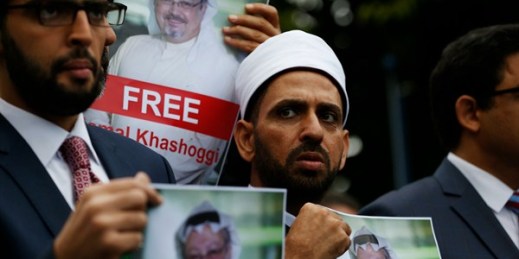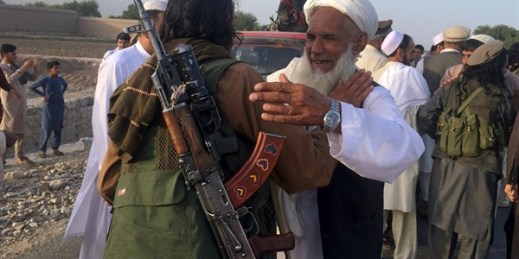
Editor’s note: Guest columnist Neil Bhatiya is filling in for Judah Grunstein, who will be back next week. Saudi Arabia continues to face unprecedented criticism from the United States, its longstanding regional ally, over the murder of Washington Post columnist Jamal Khashoggi in the Saudi consulate in Istanbul four weeks ago. Earlier this month, Congress formally asked the Trump administration to determine whether Khashoggi’s killing exposed Saudi leaders to sanctions under the Global Magnitsky Act, a law passed two years ago with broad bipartisan support to punish credibly accused violators of human rights around the world. Saudi Arabia is trying […]



